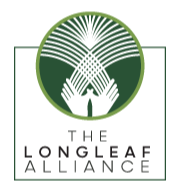Fire-Community & Infrastructure
Big Flat Community Protection
The Big Flat Community Protection Project boundary landscape covers approximately 11,388 acres dominated by dense stands of even-aged Douglas-fir and tanoak that present a high hazardous fuels risk for the remote wildland urban interface (WUI) community of Big Flat.
Scattered Lands Hazardous Fuels
The Scattered Lands Hazardous Fuels project focuses on 173,942 acres of high-risk forestlands in North Idaho.
Catalina-Rincon Restoration and Fuels Mitigation
The Catalina-Rincon Restoration project area consists of 925,450 acres, encompassing the Santa Catalina Ranger District of the Coronado National Forest (CNF). The project area wraps around the northern and eastern sides of the Tucson basin with a population of nearly 1 million.
Wood River Valley Forest Health & Wildfire Resilience
The Wood River Valley Forest Health and Wildfire Resilience Project will reduce the significant wildfire threat to the main populous corridor in Blaine County, Idaho.
Bear Creek to Signal Peak
The Bear Creek to Signal Peak Collaborative Restoration Project area is located north and west of Silver City in southwestern New Mexico.
Southern Front Range Watershed
The Southern Front Range (SFR-JCLRP) project will treat vegetation in the project area within Pueblo, Custer, Huerfano, and Las Animas counties. Treatments would be adjacent to or near the towns of Cuchara, Aguilar, Stonewall, Wetmore, Westcliffe, Beulah, and Rye, Colorado.
Connecting Fuels Treatments in the Salish Mountains and Whitefish Range
This landscape-scale fuels reduction project targets connecting 25 miles of cross boundary fuel reduction treatments within the rapidly expanding wildland urban interface (WUI) and communities at risk of catastrophic wildfire near the Salish Mountains west of Kalispell and north to the Whitefish Range.
Central Sierra Recovery and Restoration
Treatments to more than 3,100 acres helped create a defensible space for fire fighters to protect four communities during the 2018 Ferguson Fire. This Joint Chiefs’ project helped in reducing fuel loads and removing hazard trees in the wildland urban interface. These practices are critical in reducing the threat of catastrophic wildfire to local communities and sensitive habitats.
Nebraska Northwest Landscape Restoration
USFS, NRCS, and partners have conducted prescribed burns or mechanically removed cedar on approximately 40,000 acres in the Sandhills grasslands.


























